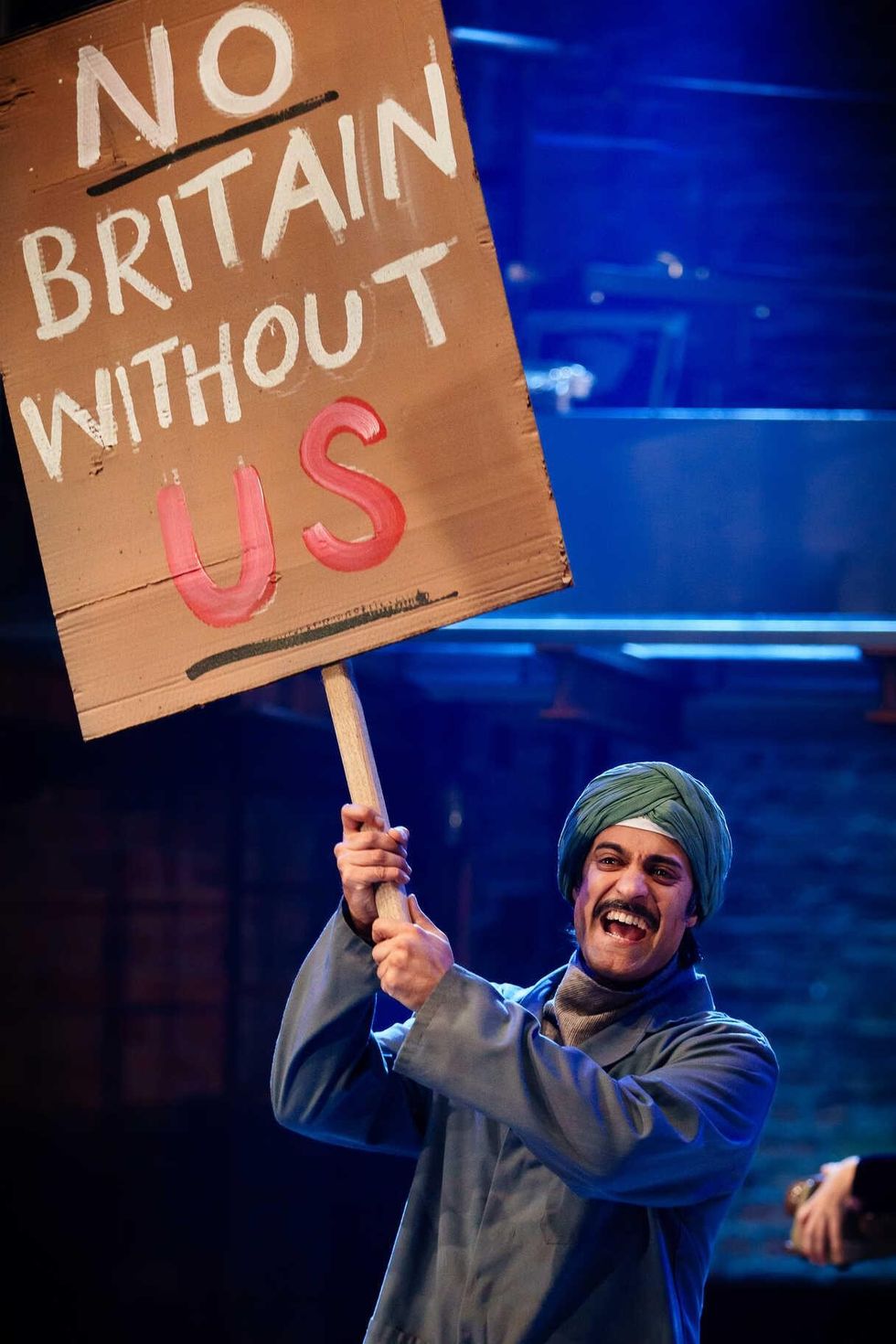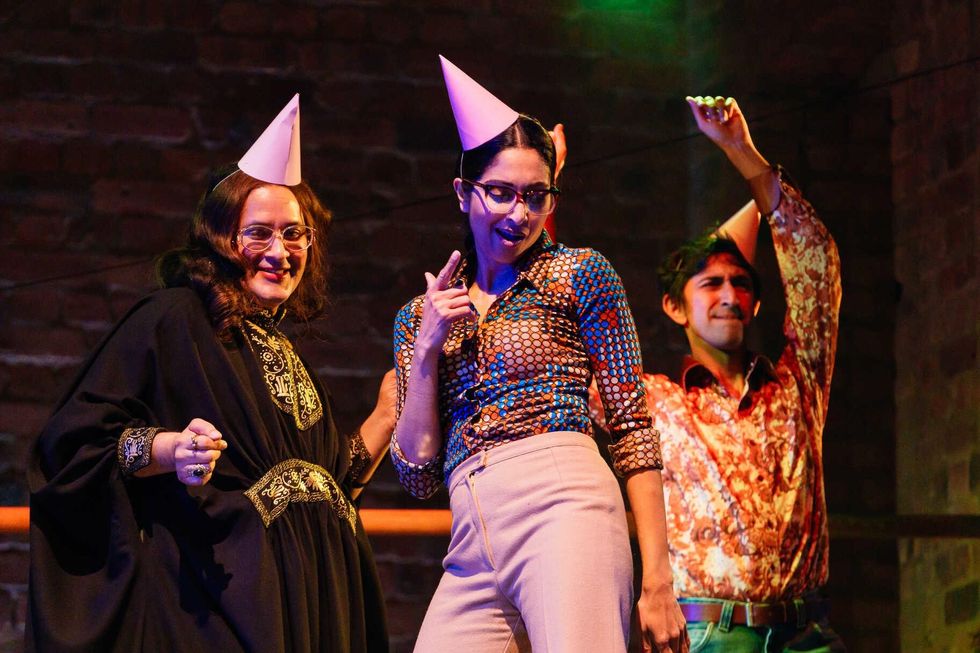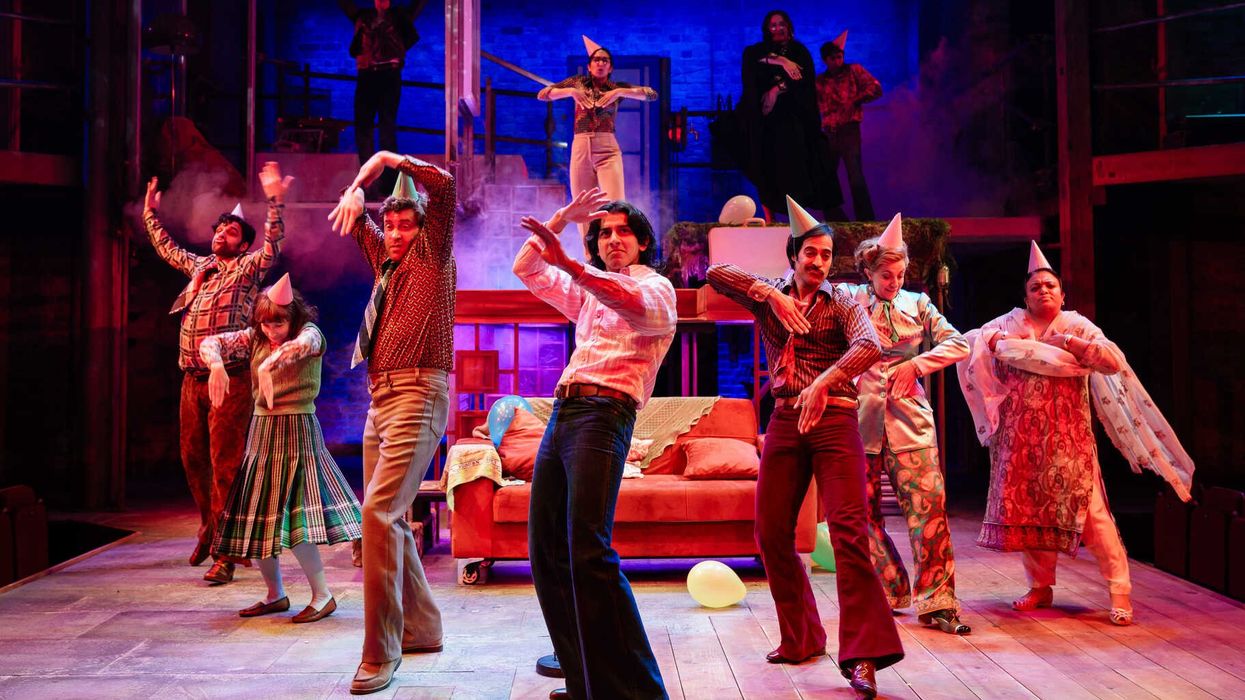A day before I saw the RSC production of The Buddha of Suburbia, a private school principal and I were chatting in his office about some of author Hanif Kureishi’s themes – whether they still resonate with readers and audiences today.
Kureishi’s debut and seminal The Buddha of Suburbia (1990) is loosely semi-autobiographical and set in the 1970s south London.
It tells the story of Karim Amar, an aspiring teenage actor of mixed-race background, circuitously making his way in the confusion of having both white and Indian identities.
It contains taboos – infidelity, divorce, the lure of western music, and gay sexuality, and mutual masturbation.
Emma Rice directs (and co-adapts with Kureishi) the 1990 novel for the stage, and, on the whole, does a pleasing job.

The play has Karim ‘…an Englishman born and bread. Almost’ (played by Dee Ahluwalia) narrating the story into the microphone stand. He looks like a comedian as he flutters from the present to the past, and from the past to the future, while Rice intersperses his story with slow motion, dance routines and pauses.
Rice provides a relatively faithful interpretation of the work by trying to cram as much of the book as possible.
The 1970s’ sound track gives the show a certain coolness, but choreography is a bit messy, humour thin, and running at almost three hours in length, the production is a bit long and could work equally well as a two-hour story.
However, Rice gets a good performance out of Ahluwalia. His presence on stage and address to the audience contain just the right tone, charm, and cynicism. His demeanour, poise, and camp dress are pleasure to watch.
Tommy Belshaw as the egotistical Charlie – who compares himself with David Bowie – is also colourfully flamboyant, while Ankur Bahil’s cold Haroon injects the right level of emotional detachment and pathos to render him both a victim and perpetrator of the destruction of his marriage (his headstand pose that seems to last a life time is amazing).
Other notable actors deserve a mention, including Ewan Wardrop. His comical and satirical portrayal of Matthew Pyke (the director who is into wife swapping) is sparkling and amusing, with the overtones of the all-too familiar seaside postcard titillation relating to sex toys and bananas.
Raj Bajaj who delivers an innocent and charming performance as the child-like, disillusioned Indian, Changez, and Natasha Jayetileke who plays the jubilant Jamila (a feminist with a healthy appetite for both sex and politics), provides the right mix of frivolity and maturity, while Lucy Thackeray’s hippy Eva is just as enticing as Eva finds Haroon’s exotic personality and Eastern mysticism.

Set in the 1970s with the coming of age as the backdrop and sprinkled with racism, prejudice, and far-right violence, the jury is still out as to whether The Buddha of Suburbia is just as relevant now as it was 30-40 years ago or whether the perimeters for this debate have changed. As my friend, the school principal alluded, since 9/11 we have been moving towards a different form of racism. Today it is brown on brown racism in Asian communities – manifesting in cultural suspicion, religious intolerance, anti-Semitism, and homophobia – that we need to address.
Rating: *** (3 stars)
The Buddha of Suburbia written by Hanif Kureishi
Directed by Emma Rice
Swan Theatre, RSC, Stratford Upon Avon
Until June 1, 2024




